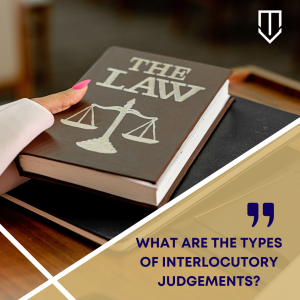 A Marvin agreement is an implied or express contract made between two nonmarried cohabitants/partners regarding property rights during a romantic relationship. Generally, unmarried partners living together can enter a variety of contracts, including but not limited to pooling their earnings to share property equally, holding property as joint tenants or tenants in common, or keeping their earnings and property separate. (Marvin v. Marvin (1976) 18 Cal.3d 660, 674; Hill v. Westbrook’s Estate (1950) 95 Cal.App.2d 599; Della Zoppa v. Della Zoppa (2001) 86 Cal.App.4th 1144.) If established, a Marvin agreement gives property rights to a romantic partner similar to that of a married individual. As such, a Marvin claim works similarly to a breach of contract claim but is ultimately based on equity.
A Marvin agreement is an implied or express contract made between two nonmarried cohabitants/partners regarding property rights during a romantic relationship. Generally, unmarried partners living together can enter a variety of contracts, including but not limited to pooling their earnings to share property equally, holding property as joint tenants or tenants in common, or keeping their earnings and property separate. (Marvin v. Marvin (1976) 18 Cal.3d 660, 674; Hill v. Westbrook’s Estate (1950) 95 Cal.App.2d 599; Della Zoppa v. Della Zoppa (2001) 86 Cal.App.4th 1144.) If established, a Marvin agreement gives property rights to a romantic partner similar to that of a married individual. As such, a Marvin claim works similarly to a breach of contract claim but is ultimately based on equity.
In order to prevail on a Marvin claim, a party must prove that an agreement existed between nonromantic partners to treat the property as theirs together. At Underwood Law Firm, our attorneys are more than familiar with Marvin agreements and their relationship with property rights.
 California Partition Law Blog
California Partition Law Blog


 A deed of trust is a commonly used mortgage document in California. Essentially, a deed of trust provides a lender with security for the repayment of the loan and effectively functions
A deed of trust is a commonly used mortgage document in California. Essentially, a deed of trust provides a lender with security for the repayment of the loan and effectively functions  Attorney’s fees are those fees owed by a client to an attorney who performed legal services on behalf of the client. In some cases, a court may order the losing party to pay the attorney’s fees of the other party. Whether attorney’s fees are available as damages depends on the nature of the action. In cases involving a breach of contract, whether attorney’s fees are available generally depends on the terms of the contract.
Attorney’s fees are those fees owed by a client to an attorney who performed legal services on behalf of the client. In some cases, a court may order the losing party to pay the attorney’s fees of the other party. Whether attorney’s fees are available as damages depends on the nature of the action. In cases involving a breach of contract, whether attorney’s fees are available generally depends on the terms of the contract.  A motion to determine title is a motion to the court requesting that the court establish title to a piece of real property. Typically, a motion to determine title shows up in the court as a quiet title action. A quiet title action is brought when a litigant seeks to establish that they have an ownership interest in the subject property and refute any adverse claims against the litigant. It follows that to prevail on a motion to determine title; one must show that they hold some ownership interest in the subject property.
A motion to determine title is a motion to the court requesting that the court establish title to a piece of real property. Typically, a motion to determine title shows up in the court as a quiet title action. A quiet title action is brought when a litigant seeks to establish that they have an ownership interest in the subject property and refute any adverse claims against the litigant. It follows that to prevail on a motion to determine title; one must show that they hold some ownership interest in the subject property.  Slander of title is quite the unique cause of action. As the name implies, it involves defamatory or slanderous activity but not against any person or personal interest. Instead, a slander of title involves activity that calls the state of your title into doubt (by, for example, filing an unwarranted lis pendens) that diminishes the value of your property.
Slander of title is quite the unique cause of action. As the name implies, it involves defamatory or slanderous activity but not against any person or personal interest. Instead, a slander of title involves activity that calls the state of your title into doubt (by, for example, filing an unwarranted lis pendens) that diminishes the value of your property.  Ejectment is an action brought by a party seeking to recover a possessory interest or claim of title in a piece of real property. Typically, an ejectment action arises when a titleholder to a piece of property has been wrongfully excluded or withheld from the property. Therefore, ejectment applies only to those cases where an individual actually has possessory title to the subject property.
Ejectment is an action brought by a party seeking to recover a possessory interest or claim of title in a piece of real property. Typically, an ejectment action arises when a titleholder to a piece of property has been wrongfully excluded or withheld from the property. Therefore, ejectment applies only to those cases where an individual actually has possessory title to the subject property. A partition by appraisal is an alternative method of partition that occurs when the parties to a
A partition by appraisal is an alternative method of partition that occurs when the parties to a  “Joint tenancy” is a phrase that most people associate with the co-ownership of a property. And indeed, this is correct. Joint tenancy is a form of co-ownership in California, second only to
“Joint tenancy” is a phrase that most people associate with the co-ownership of a property. And indeed, this is correct. Joint tenancy is a form of co-ownership in California, second only to In California, in many
In California, in many  If the parties consent to arbitration, they decide to settle their dispute outside the confines and strict procedure of courtrooms. That said, arbitration awards are not automatically court judgments just because they resolve legal claims.
If the parties consent to arbitration, they decide to settle their dispute outside the confines and strict procedure of courtrooms. That said, arbitration awards are not automatically court judgments just because they resolve legal claims.